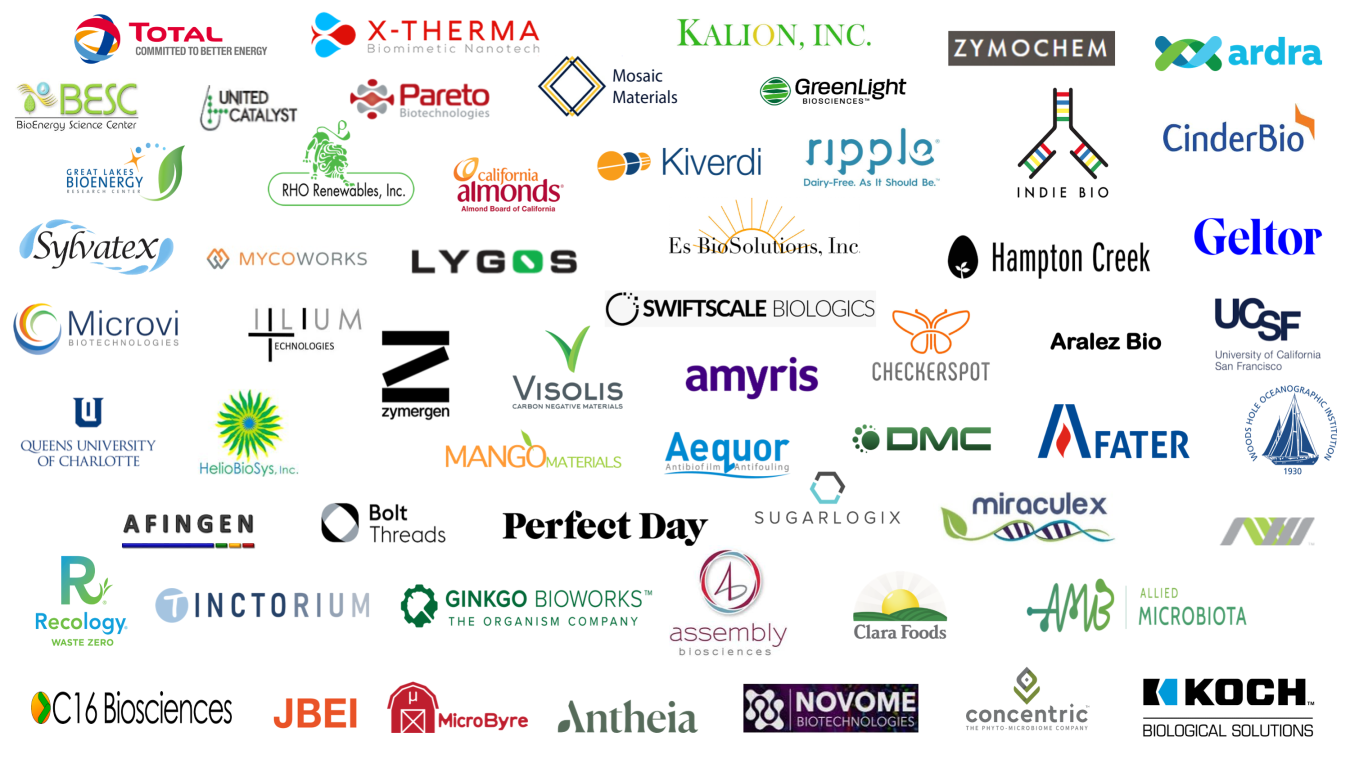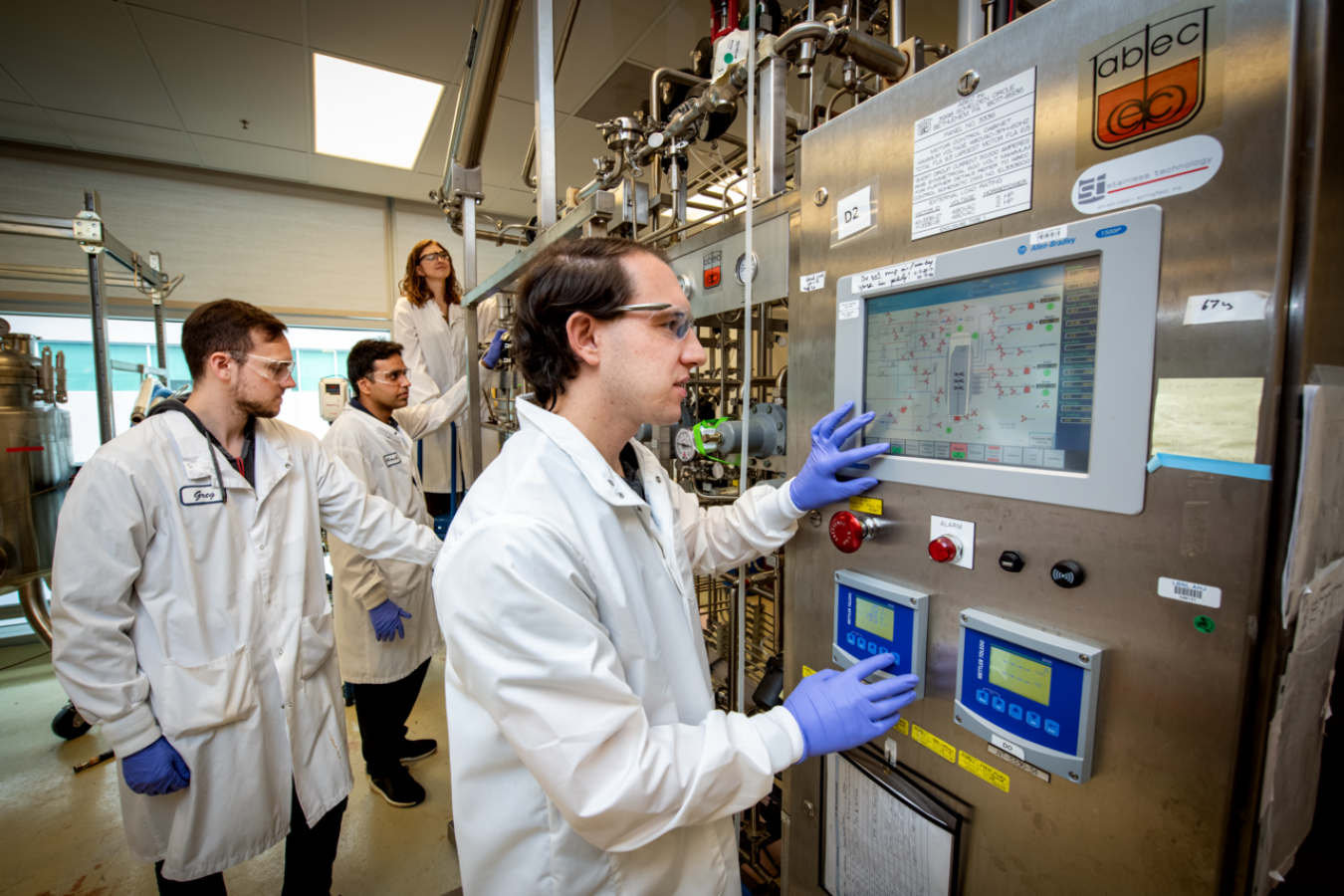Bioprose Blog: The U.S. Department of Energy’s (DOE’s) Advanced Biofuels and Bioproducts Process Development Unit (ABPDU) at Lawrence Berkeley Nationa
May 4, 2020
Author: Katy Christiansen, Laboratory Relationship Manager for BETO programs at Lawrence Berkeley National Lab
Read Katy's bio ►
Meet the other bloggers ►
Return to Bioprose blog ►
BIOPROSE BLOG
The U.S. Department of Energy’s (DOE’s) Advanced Biofuels and Bioproducts Process Development Unit (ABPDU) at Lawrence Berkeley National Laboratory is celebrating its 50th industry partner with Bay Area startup MycoWorks.
A Long History of Partnering Industry
The ABPDU serves as a scale-up testbed for collaborators developing technologies that transform raw materials—such as plants and waste—into products that affect our everyday lives. The DOE’s Bioenergy Technologies Office provides co-shared funding to the ABPDU industry partners to demonstrate these technologies and systems at progressive scales.
The ABPDU was established in 2012 with the mission of accelerating the commercialization of renewable technologies that could bolster the bioeconomy. At that time, the world of biotechnology was rapidly changing. Reading, writing, and editing the genetic code became cheaper and generated several new technologies ready for commercialization. This progress led to the emergence of several fast-growing companies pursuing a wide range of bioproducts. As ABPDU’s capabilities expanded, several of these new biotech companies looked to the ABPDU to quickly test and further develop their technologies.

The ABPDU's partners include National Labs, universities, and industry. Image credit: Emily Scott
As a result of industry collaborations, the ABPDU has proven to be a key resource in defining where biotechnology can succeed in the marketplace. Its partners have ranged from National Labs and universities to emerging startups and established companies. Many of these partners have set up their own labs or pilot plants and secured additional funding as a direct result of working with the ABPDU.
Several other partners have launched products after working with the ABPDU, including:
- Ginkgo Bioworks
- Geltor
- Perfect Day
- Ripple Foods.
ABPDU: Helping Industry Move Toward Commercial Relevance
The ABPDU’s capabilities have enhanced biology’s power to transform products, supply chains, and economies. From skis made with algae-derived oil to methane-hungry microbes that churn out biodegradable plastic, the ABPDU is helping its collaborators take their work to the next level in the marketplace.
When biotech startup Tinctorium began developing indigo dye for denim jeans, they looked to the ABPDU to bring their early-stage process to commercial relevance.
“Our time with ABPDU allowed us to show that our technology has promise in scaling up to larger reactors,” said Tammy Hsu, Tinctorium’s chief scientific officer. “We were able to make enough product to show that our dye process can be used in our final industrial application.”

The ABPDU works with industry and academic partners to transform raw materials into renewable products. Photo credit: Berkeley National Laboratory
ABPDU Scientists Transform the Bioeconomy
Aside from helping partners scale up their technologies and generate prototype-level product samples, the ABPDU is also pursuing research that could help transform the bioeconomy.
Last year, researchers at the ABPDU converted unique blends of plant material and municipal waste into chemical compounds that can be used as renewable diesel fuel precursors. They scaled up one of these blends 30-fold and are currently attempting to scale up the process even further. This work provides a promising example of how renewable non-food materials can be used to create biofuels.
As the biotech industry continues to evolve, the ABPDU remains well-equipped to adapt to the industry’s needs and support the bioeconomy.
“Our partners have played a key role in ABPDU's success,” said Deepti Tanjore, Director of the ABPDU. “We look forward to continued collaborations and new partnerships that will help us advance the bioeconomy.”

